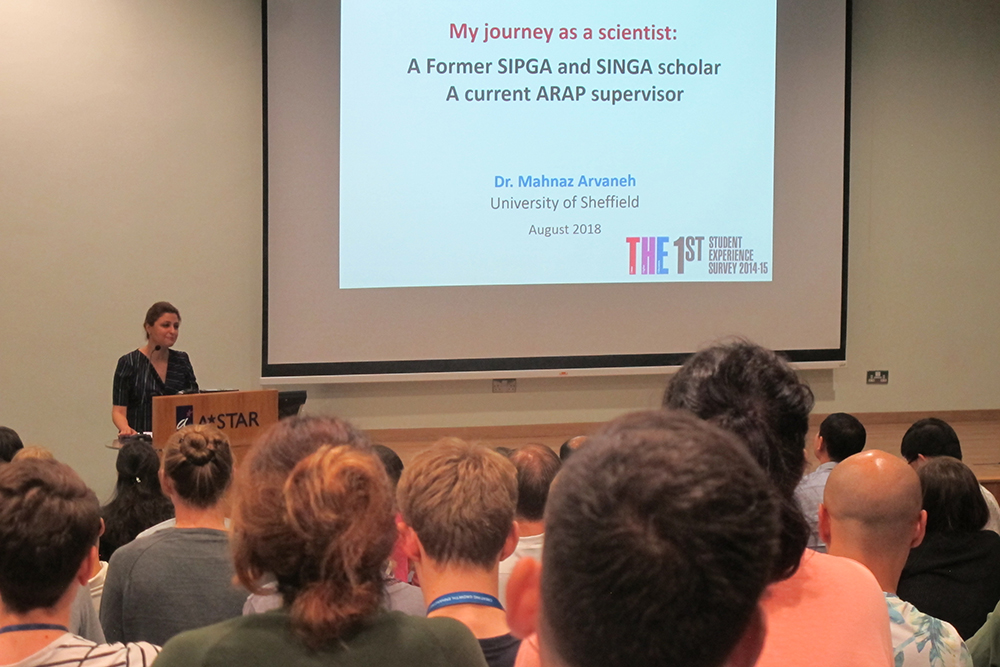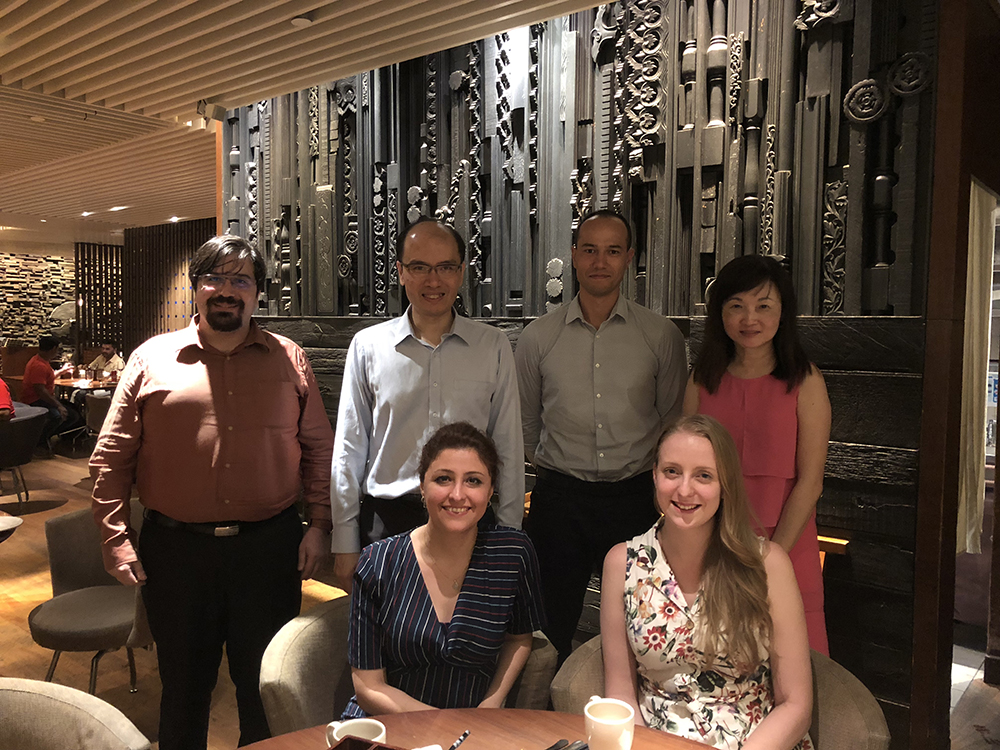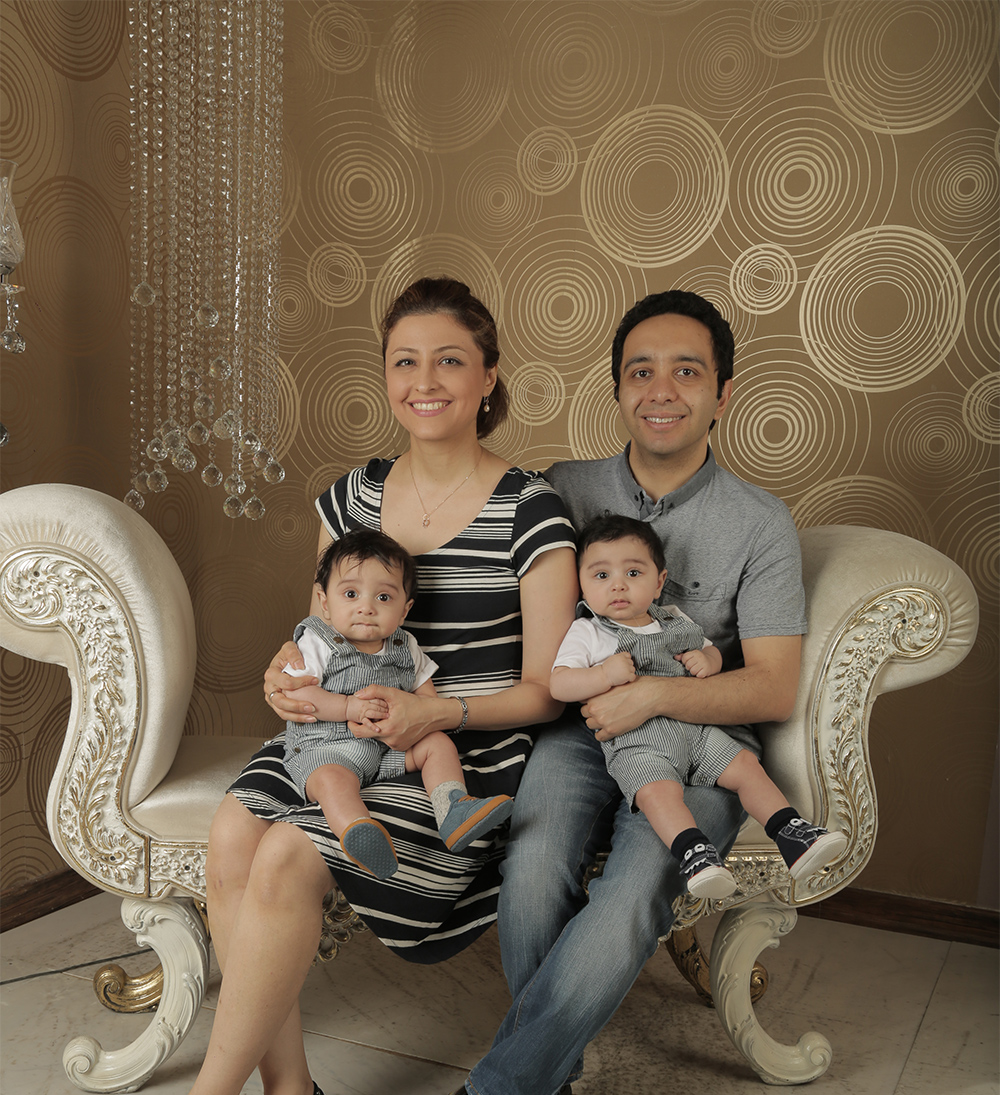FACES OF A*STAR
Dr Mahnaz Arvaneh: Knowledge in Diversity

Dr Mahnaz Arvaneh
2018 marks the 10th anniversary of the Singapore International Graduate Award (SINGA)- which supports the brightest minds in science and engineering from diverse nationalities.
The Award is a collaboration between A*STAR- the Nanyang Technological University (NTU)- the National University of Singapore (NUS) and the Singapore University of Technology and Design (SUTD).
Among the earliest batch of SINGA scholars is Dr Mahnaz Arvaneh- who received her PhD in 2013. She is now supervising PhD students under the A*STAR Research Attachment Programme (ARAP).
We catch up with the SINGA alumnus to find out how the award has made a difference in her career and her thoughts on mentorship.
Q: What role has SINGA played in your professional journey?
Dr Arvaneh: SINGA has boosted my confidence in science and research significantly. The scholarship also gave me a sense of belonging to the A*STAR family- a community which is passionate about science and technology. The SINGA gatherings and thesis advisory meetings with like-minded scholars all contributed in improving my personal and professional skills. Ultimately- SINGA gave me an ease of mind to dedicate my time and effort on my research and PhD.

Q: Could you tell us about your work to develop technologies for brain-related conditions?
Dr Arvaneh: My research area is in machine learning and adaptive signal processing to accurately detect important patterns and waveforms in brain signals that can be associated with different mental states- cognitive functions- emotional state or changes in brain network due to a disease. These interesting brain patterns and waveforms are called neuro-markers. I incorporate these neuro-markers in robotic stroke rehabilitation- brain monitoring and cognitive performance enhancement experiments both in the laboratory and clinical settings.
Q: We hear that you are also collaborating with A*STAR’s I2R on a solution to diagnose and monitor depression. Could you tell us more?
Dr Arvaneh: Depression is the most common mental health disorder that afflicts society today. It is also the most common cause of disability worldwide and a major risk factor for suicide.
Typically- depression is assessed by clinicians using questionnaires and interviews- which is subject to a range of human biases and misinterpretations.
I am currently working on a joint project with A*STAR’s Institute for Infocomm Research (I2R) to develop assistive technologies that can help clinicians diagnose and monitor the progress of depression in objective and automated ways.
The preliminary results are very encouraging- and we look forward to potentially improve the treatment of patients with depression.

Q: How do you feel about being a mentor under the A*STAR Research Attachment Programme (ARAP)?
Dr Arvaneh: We would never progress in science if we do not dedicate our time- energy and resources to mentor and support the next generation of scientists.
I am extremely happy to be able to mentor ARAP students jointly with my PhD supervisors at the institute that I did my PhD in- I2R.
Since September 2015- I have been a Lecturer at the University of Sheffield. I’m also currently a member of the Sheffield Robotics Group- which holds one of the largest portfolios of publicly funded robotics research in the UK.
But this mentorship programme has helped me to stay connected to A*STAR- my previous colleagues and Singapore. I feel that the ARAP provides a great opportunity for students to work in both an academic environment and a research institute with close ties to the industry and end users.
I am very delighted to be supervising ARAP students in impactful projects that work towards improving the quality of people’s lives.

Q: We understand that you met your husband- also a SINGA awardee- in Singapore. Does the passion for science and discovery run in the family?
Dr Arvaneh: My husband- Hamed Ahamdi- is an assistant professor at the University of Essex- UK. He was a SINGA scholar when we met each other for the first time.
We got married in Singapore while we were PhD students. Since January 2017- we have been parents of two gorgeous twin boys. I have been extremely lucky to have my husband on my side supporting me in my career.
Being in academia as a woman with two young children is very challenging and stressful. I would never be successful if he was not such a caring and supportive person.
As a family- we love travelling around the world- meeting new people and experiencing new culture. It can be quite challenging now that we have kids- but we truly cherish the time we have with our sons.
Was this article helpful?
A*STAR celebrates International Women's Day

From groundbreaking discoveries to cutting-edge research, our researchers are empowering the next generation of female science, technology, engineering and mathematics (STEM) leaders.
Get inspired by our #WomeninSTEM
